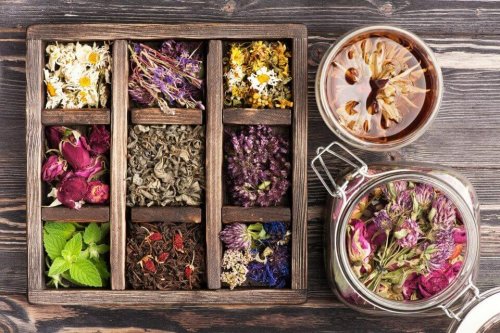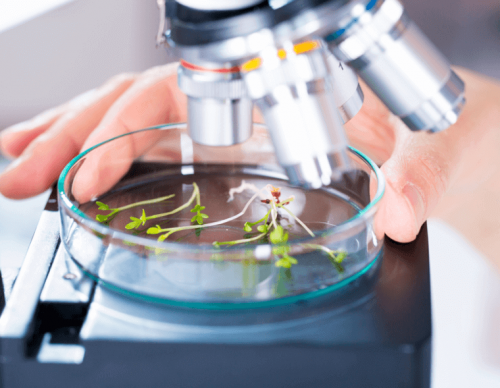What Are the Benefits of Phytotherapy?

Phytotherapy is relevant because there are more and more people looking for ways to treat their ailments with all-natural products these days. Of course, plants are a huge part of it. So, what are the benefits of phytotherapy?
For instance, drinking an infusion might improve your digestion, improve your fluid retention or even soothe a bad stomach ache. As you can see, phytotherapy is already present in your life. At least much more than you think.
What’s phytotherapy?
As the article Origins and situation of phytotherapy in Chile points out, phytotherapy is the application of plants for medical and therapeutic purposes.
This use of plant-based products is quite popular today. This is because they have few side effects and because sustainability is regaining its proper importance.

The benefits of phytotherapy
Bach flowers are a form of phytotherapy. These plant extracts are highly effective in the treatment of conditions such as stress, according to the article Effectiveness of Bach’s floral therapy against the academic stress in first-year Stomatology students.
So, as you can see, there are many advantages to using phytotherapy. Let’s find out what some of the benefits are and how they can help your particular needs.
It doesn’t contain dangerous chemicals
The search for natural products aims to get away from the excessive use of pharmaceuticals to treat mild diseases. It seems to be a much more respectful way to deal with our bodies. Self-medication is never a good idea, but jumping on the phytotherapy bandwagon is.
Phytotherapy is economical
We all know the price of cough syrup at a pharmacy. So, why not opt for a ginger infusion that can also effectively soothe your discomfort? As you can see, phytotherapy is a lot more economical and available to everyone. Of course, you have to know what you’re looking for.
Why not read: Eight Aromatic Oils to Help You Sleep Better
Few side effects
This third benefit of phytotherapy is the reason why many doctors recommend it to patients undergoing cancer treatment. This is because plants can reduce nausea and they’ll feel better and in a better frame of mind, especially when it comes to dealing with their disease.
Phytotherapeutic plants are available in the form of capsules, lotions and essential oils. You must always take into account the opinion of your doctor as they can help you choose the most effective method for your specific case.
Phytotherapy is a resource for new treatments

Even though we tend to keep natural therapies and pharmaceuticals in different categories, many of the new medical treatments now include aromatic and medicinal plants. So, it’s clear they have many health benefits when science endorses their use.
Proper cultivation technique
You can turn to specific establishments to find the ingredients that’ll help you obtain what you need in order to benefit from phytotherapy. However, there’s always the option to grow these plants yourself.
When you cultivate them yourself, you’ll have all you need to elaborate essential oils that you can use in aromatherapy. It seems difficult but all you need is practice. Think of the possibilities, for instance, you can save money and you’ll have any type of oil you need at your disposal.
Discover: The Incredible Benefits of Frankincense Essential Oil
So, now you know the benefits phytotherapy can bring to your life, why not try it out? For example, you could stop using so many drugs when you’re ailed by heartburn, the flu or any other mild condition. Don’t think twice and give medicinal plants a chance.
You’ll be surprised at how your discomfort or pain go away, and all without side effects! Many people have adopted phytotherapy and are getting highly positive results.
Begin with a simple recipe, such as making the essential oil of your choice. In any case, you can always get Bach flowers to treat with your stress or anxiety. Put their benefits to the test!
All cited sources were thoroughly reviewed by our team to ensure their quality, reliability, currency, and validity. The bibliography of this article was considered reliable and of academic or scientific accuracy.
- Gallegos-Zurita, Maritza. (2016). Las plantas medicinales: principal alternativa para el cuidado de la salud, en la población rural de Babahoyo, Ecuador. Anales de la Facultad de Medicina, 77(4), 327-332. Recuperado en 05 de julio de 2019, de http://www.scielo.org.pe/scielo.php?script=sci_arttext&pid=S1025-55832016000400002&lng=es&tlng=es.
- Zambrana Álvarez, Teresita. (2005). Beneficios de la fitoterapia. Revista Cubana de Plantas Medicinales, 10(2) Recuperado en 05 de julio de 2019, de http://scielo.sld.cu/scielo.php?script=sci_arttext&pid=S1028-47962005000200001&lng=es&tlng=es.
- AVELLO L, MARCIA, & CISTERNAS F, ISABEL. (2010). Fitoterapia, sus orígenes, características y situación en Chile. Revista médica de Chile, 138(10), 1288-1293. https://dx.doi.org/10.4067/S0034-98872010001100014
- Estrategia de la OMS sobre medicina tradicional 2014-2023. Organización Mundial de la Salud. https://www.who.int/topics/traditional_medicine/WHO-strategy/es/.
- Maceo Palacio, Omar, Ramos Guevara, Kenia, Maceo Palacio, Alberto, Morales Blanco, Ileana, & Maceo Palacio, Maricel. (2013). Eficacia de la terapia floral de Bach contra el estrés académico en estudiantes de primer año de estomatología. MEDISAN, 17(9), 4064-4072. Recuperado en 20 de junio de 2020, de http://scielo.sld.cu/scielo.php?script=sci_arttext&pid=S1029-30192013000900002&lng=es&tlng=es.
- Pabón, Ludy C y Rodríguez, Martha F y Hernández-Rodríguez, Patricia (2017). Plantas medicinales que se comercializan en Bogotá (Colombia) para el tratamiento de enfermedades infecciosas. Boletín Latinoamericano y del Caribe de Plantas Medicinales y Aromáticas, 16 (6), 529-546. [Fecha de consulta 20 de junio de 2020]. ISSN: 0717-7917. Disponible en: https://www.redalyc.org/pdf/856/85653615002.pdf.
This text is provided for informational purposes only and does not replace consultation with a professional. If in doubt, consult your specialist.








